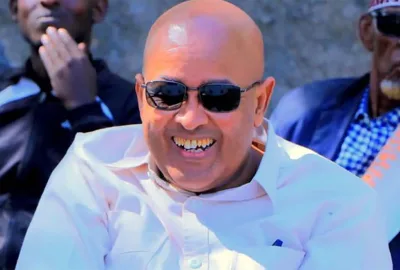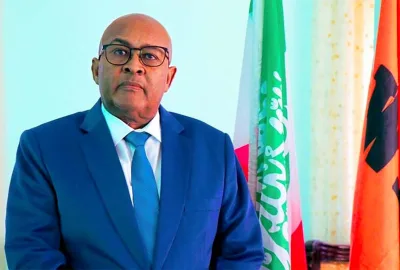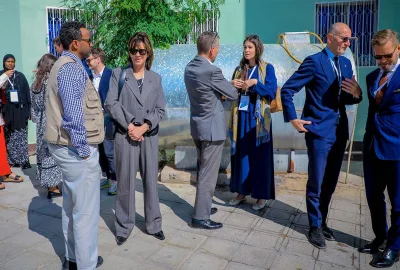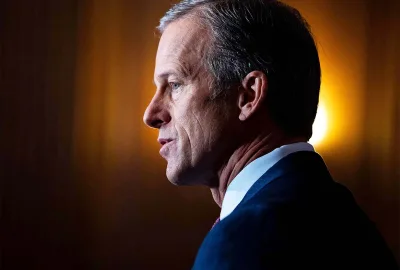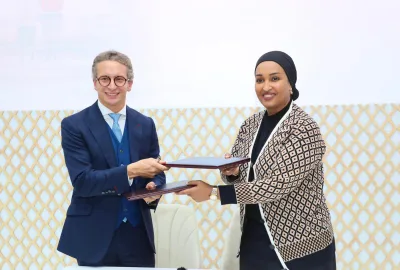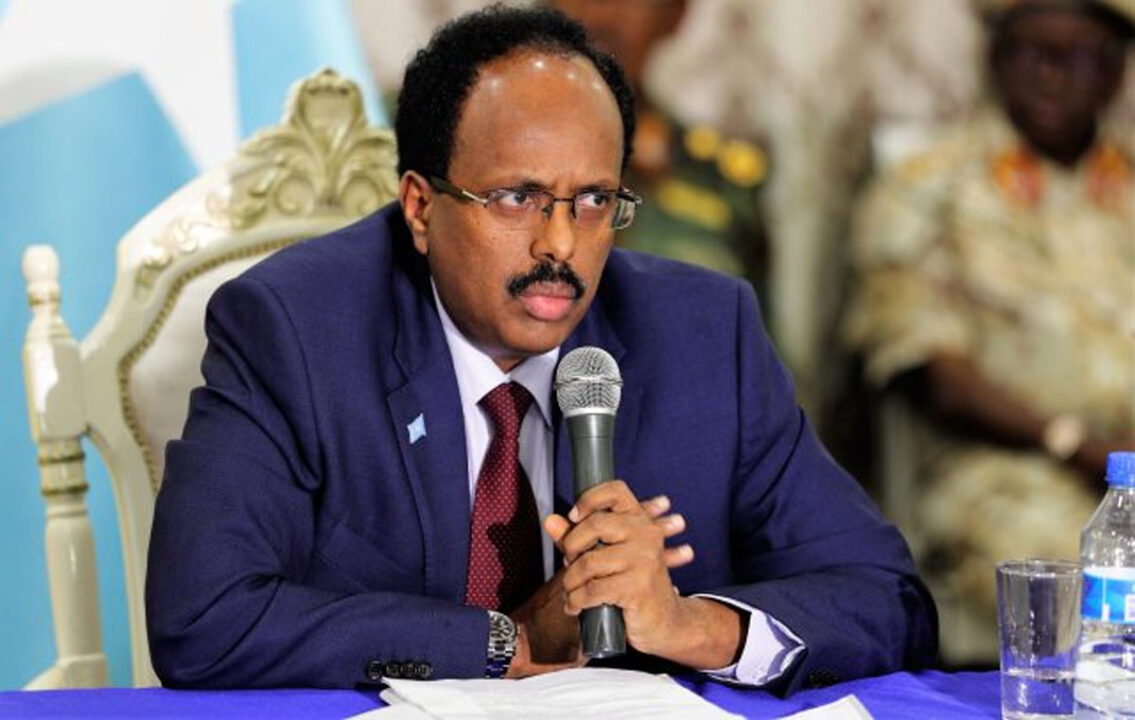
With many focused on the dangerous conflict in Ethiopia, Somalia is facing a triple security crisis. If unaddressed, it could severely jeopardize the country’s halting progress.
As I’ve written previously, the first crisis is that Ethiopia’s instability and ethnic strife harm Somalia’s security. The second, discussed here, is upcoming parliamentary and presidential elections in Somalia, scheduled for December 2020 and February 2021, which are raising tensions among and between Somalia’s federal government, Somalia’s federal member states, and clans. The third, also discussed in this piece, is the Trump administration’s decision to withdraw the majority of U.S. special operations forces from Somalia by January 15, 2021, which will further weaken the various struggling anti-Shabab forces and strengthen the jihadists.
Somalia should consider delaying the elections by two or three months, if it can reach consensus to do so among Somali politicians (rather than force a unilateral decision by Mogadishu); and Washington should keep U.S. special forces in Somalia through Somalia’s elections.
THE ELECTION RISKS
After political deadlock during much of this year, Somalia is at the last minute organizing parliamentary elections for December 2020 and presidential ones for February 2021. Delayed by months of quarrels over process (more on that in a minute), the preparations now severely lag behind. Tensions are running high among the federal government of Somalia, federal member states, and Somalia’s various clans over the distribution of military, political, and economic resources between the capital and the regions.
President Mohamed Abdullahi Mohamed (known as “Farmajo”) is running for reelection, but many influential politicians — such as presidents of several federal member states and rival clan elders — do not want to see him reelected. Al-Shabab and even the far-less potent and more territorially-restricted Islamic State in Somalia can disrupt the elections. As before, there are risks of vote-buying and fraud. Most dangerously, there is a high possibility of violence both during the elections and after winners are declared.
Under pressure from the United States, the United Kingdom, and the United Nations, Mohamed gave up on the one-person, one-vote ambition in September 2020, and Somalia’s political leaders accepted the so-called Mogadishu Model: Clan elders, nominated by clans and verified by federal and state authorities, select electoral college delegates. These electoral colleges, set up for each lower-chamber parliamentary seat, select the parliamentary representatives; the parliamentary representatives then select the president. State assemblies select members of the upper chamber.
Each step provides rife opportunities for bribery and patronage. The system reinforces clan identity, a fundamental but problematic cleavage of political and social life in Somalia. Registration lists of the selectors, like clan elders, remain deficient and contested. At first glance, there appear to be several improvements on the similar 2016 model: Each electoral college will now have 101 members, larger than before. Altogether, there will be 27,775 delegates. Each federal member state now has two voting locations, instead of one. But will those changes make bribery more difficult, or merely more expensive? The quota of seats reserved for women increased to 30%, but will it be filled?
Elections of state assemblies are also violence-prone, as they directly intersect the crucible of Somalia’s center-periphery tensions: President Mohamed will seek to promote his allies while his political rivals (such as Jubaland’s President Ahmed Madobe and Puntland’s President Said Abdullahi Dani) will perpetuate their iron-fist regimes and back their allies. Meanwhile, Somalia’s powerful clans are also mobilizing, and apparently arming, at local and national levels to attempt to sway the elections.
There is potential for good news: In theory, Somalia’s civil society is for the first time given a chance to work with clan elders to select electoral college delegates, and might have a more formal monitoring role. But only weeks before elections, many key dimensions of the process are problematic: The exact civil society role is undefined, reducing its capacity to fight corruption and promote inclusion; electoral dispute-resolution mechanisms are incomplete; and authorities and procedures between the federal electoral commission and regional electoral commissions are murky.
Perhaps the greatest danger is that losers and those opposed to Mohamed, should he be reelected, will simply reject the results. That could set off complex violent conflicts benefitting al-Shabab. Prior contested elections in the South West State and in Jubaland, where Mohamed sought to install his allies, led to violence. The post-election military skirmishes in Jubaland were particularly threatening as they brought two AMISOM members close to military blows: Kenya, supporting Jubaland’s president Ahmed Madobe, and Ethiopia, supporting Mohamed and his local allies.
THE RISKS OF A U.S. TROOP WITHDRAWAL
The Trump administration’s decision to rapidly withdraw U.S. soldiers from Somalia throws an additional wrench into the elections and Somalia’s security situation more broadly. Although it is not clear whether the policy, signaled since October and affirmed last week, has been transmitted as an order to military commanders in the field, its mere anticipation is destabilizing.
The 700 U.S. Special Operations Forces in Somalia have several functions, ”For years, many foreign donors as well as many Somalis have hoped that Somalia would move toward a direct one-person, one-vote system. Such direct elections would allow more inclusive political representation and enhance accountability. President Mohamed embraced that agenda in early 2020, persuading the lower chamber of Somalia’s parliament to pass a new electoral law to that effect. But the upper chamber and Somalia’s rival politicians demurred. Presidents of federal member states and politicians whom Mohamed has sought to weaken and/or remove from office — and who have had explosive relations with Mogadishu — perceived the change as Mohamed’s last-minute ploy to extend his rule by preventing elections from taking place on time. Indeed, the organizational challenges of implementing any such new electoral system would be immense.
So would the security obstacles, already threatening the current indirect electoral college design. Security in Somalia has been slowly but steadily deteriorating, with al-Shabab conducting attacks along major Somali roads and in major Somali cities across much of the country, including Mogadishu. Neither Somali security forces nor the African Union Mission in Somalia (AMISOM), an international stabilization force, have mounted anywhere near adequate preparations for the elections. Fractious federal member states may not welcome Somali federal forces to secure the elections, but their state forces are also potentially biased and/or unprepared.
They train the most capable multi-clan unit of the Somali National Army — the 850-men strong Danab brigade — and support its anti-Shabab operations. While Danab has had only tactical successes and has not altered Somalia’s strategic security picture, it does disrupt devastating terrorist attacks. And it is an exemplar of capacities and cohesion for the Somali National Army. But there are fears that the U.S. withdrawal will lead to the unit’s collapse, raising questions about the sustainability of such U.S. training efforts.
S. soldiers on the ground strengthen air power targeting. The bombing has failed to crush al-Shabab as Washington had hoped. But it prevents al-Shabab from massing, thus complicating the jihadists’ attempts to overrun AMISOM and Somali bases. Under the new U.S. military plans, attack drones will still fly from Kenya and Djibouti. But the risks of tragic and politically-exploitable civilian casualties will grow, and the air strike frequency is likely to decrease. Fearing al-Shabab, AMISOM may bunker up in garrisons even more and reduce the number of bases, thus weakening anti-Shabab militias.
The presence of U.S. forces itself stiffens the spine of anti-Shabab militias. Many such militias are problematic and cause human rights abuses, but other than Danab and U.S. operations, they are frequently the only force fighting al-Shabab. The departure of U.S. forces from Somalia will further exacerbate a declining security picture in Somalia and strengthen al-Shabab. If President Trump’s plans proceed, the withdrawal will happen at the worst possible time, compounding the immense insecurity and uncertainty around Somalia’s elections.
WHAT CAN BE DONE?
The immediate priority for the international community is to prevent at least the violence around elections that Somali politicians can induce. The United States and partners should facilitate consensual political negotiations among Somali leaders to delay the elections somewhat — by a few weeks or a few months. Political opponents of President Mohamed may resent this proposal and oppose it at first. But such a short, mutually-agreed delay made good sense even before the announced withdrawal of U.S. special operations forces, given how unprepared both the election process and its security plans were. The deterioration of security due to the withdrawal of U.S. forces is an added reason.
Second, the international community — particularly powerful donors such as the United States, the European Union, Turkey, Ethiopia, Qatar, and the United Arab Emirates — should engage Mohamed and his rivals to persuade them to accept the election outcomes and remain peaceful as legal processes take their course. Mobilizing such international pressure will not be easy, as the rifts and rivalries among international actors in Somalia often run as hot as among Somali politicians themselves. The United Arab Emirates, for example, does not wish for Mohamed to be reelected, while Qatar supports him. So does Ethiopia, but its voice may be undermined by its handling of its own internal crisis.
Beyond the elections, the international community must rethink its stabilization efforts in Somalia. If the Trump administration withdraws U.S. special forces in the country before Biden takes office, the next administration should carefully consider whether to return them. Extending AMISOM’s presence again, beyond its December 2021 timeframe, is desirable and necessary. But so is demanding far more meaningful action from AMISOM. Efforts to build Somali federal and state forces need to be coupled with meaningful accountability measures, deep structural changes, and far more tough love.
Some are calling for considering negotiations with al-Shabab — not rushed ones like the recent problematic U.S. wildcat effort, nor the opaque and fraught amnesty deals with so-called high-value defectors that Somalia has practiced for years. But any such negotiations would require that various parties — international donors, Somalia’s politicians (who mostly feel no desire to negotiate a national bargain with al-Shabab), civil society, and victims of al-Shabab violence — are prepared to swallow a very bitter pill. Like in Afghanistan, where the Taliban may well return to power,
Negotiations would bring al-Shabab into a coalition government. And like the Taliban, al-Shabab has not severed relations with al-Qaida. Moreover, unlike the Taliban, al-Shabab continues to conduct brutal terrorist attacks outside of Somalia, too. All of these factors underscore the challenges of a potential deal with al-Shabab. In the near term, keeping U.S. troops in Somalia’s through its elections at least is key.
By Vanda Felbab-Brown
Brookings Institution


